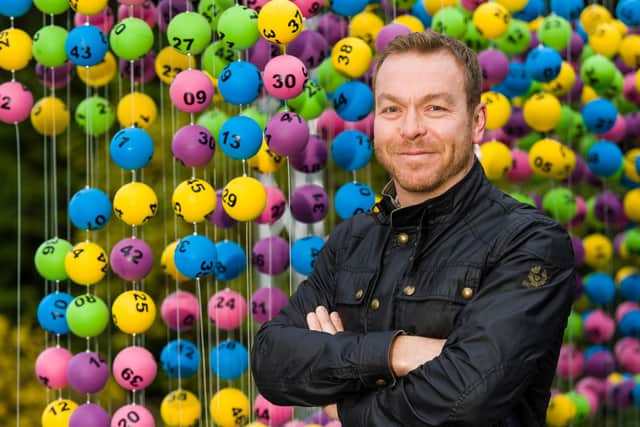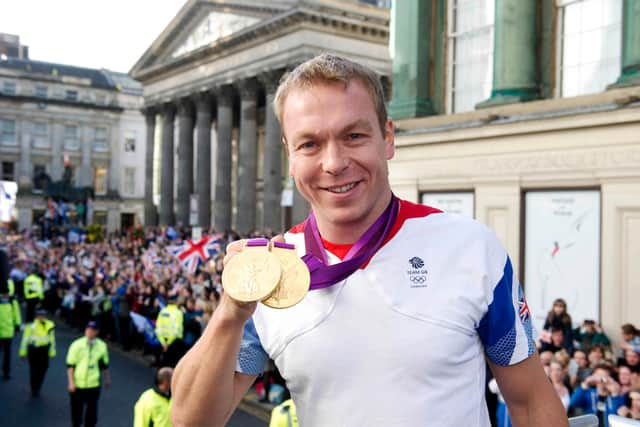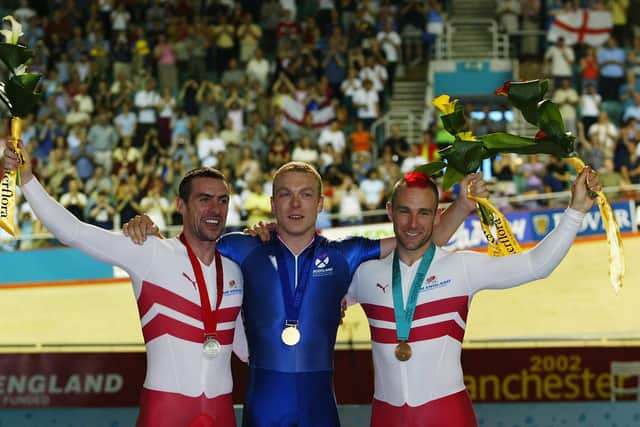Chris Hoy on Commonwealth Games memories, Richard Moore's legacy and why Edinburgh needs a velodrome
It will be a decade next April since he called a press conference at Murrayfield stadium to draw a line under a glorious career after six Olympic gold medals, two Commonwealth Games golds, 11 track world titles while not forgetting the knighthood and multiple other awards. He’s since occupied himself in a variety of ways, including writing Flying Fergus children’s books and competing at Le Mans.
“I am just glad I am still busy ten years on and that people are still interested in hearing me prattle on about riding a bike 20 years ago,” he says. “It is lovely there is still a connection to the sport and I’m still involved. I can still feel part of the cycling community and I can see it thriving.”
Advertisement
Hide AdAdvertisement
Hide AdFar from prattling on, as he self-deprecatingly describes it, he will be providing expertise during television coverage of the XXII Commonwealth Games, which begin in Birmingham on Thursday. Hoy has high hopes for the current generation of Scottish cyclists.
He is cheered to see so many talented riders “who are capable of winning medals” taking over the mantle from him and his peers. Hoy mentions Jack Carlin, Neah Evans, John Archibald and Neil Fachie, the para-cycling phenomenon from Aberdeen who is preparing to compete at his fourth Commonwealth Games.
“It is worth talking about him,” says Hoy. “Scotland’s greatest or certainly most successful Commonwealth Games athlete, he gets a passing mention in most places.
“He is with (pilot) Lewis Stewart on the tandem. Again he is one of these amazing athletes who gets on with his job and doesn’t make a big fuss out of it.”
Hoy’s first experience of the Commonwealth Games was in 1998 in Kuala Lumpur. He was still a student at the time and turned up with his own bike. It’s not true to say he didn’t have hopes of winning – in his ignorance, he just didn’t know what to expect. Cycling was a truly amateur endeavour in those days.


He was given a rude awakening, finishing ninth in both the kilo and sprint. How did he feel on the return flight home? “Hungover!” he says.
He was also demoralised. He realised something would have to change if he was to become a contender. Somewhat serendipitously, National Lottery funding for sport came in months later.
This development proved a game changer. “In the space of four years, I was on the top step of the podium at the kilo breaking the Commonwealth record,” he says. “Money doesn’t buy you a gold medal, but it gives you an opportunity. It puts the building blocks in place. I felt like I was in a level playing field against the big boys.” As many as 1100 elite athletes have been supported on UK Sport’s National Lottery funded World Class programme.
Advertisement
Hide AdAdvertisement
Hide AdCan it really have been as many as 16 years since Hoy himself pulled on a Scotland skin suit? It seems so. He skipped Delhi in 2010 because he feared taking part might compromise his Olympics training programme while Glasgow in 2014 came just too late.


He won gold in the team sprint with Craig MacLean and Ross Edgar in Melbourne in 2006 but considers Manchester four years earlier, when he earned a bronze in the team sprint and, crucially, gold in the kilo, as his breakthrough competition.
“I had not won a medal for Scotland so this was a big deal,” he says. “And also doing so individually. I had only won medals internationally as part of a team sprint with Craig and Jason (Queally), so this was my chance to stand up and be counted on my own.”
It is one of the quirks of the Commonwealth Games that Queally went from teammate to rival, from British compatriot to English adversary. An interview on YouTube from Melbourne in 2006 displays the natural bonhomie existing between the very young-looking pair.
It was unaffected by the Scot's narrow triumph at the kilo in Manchester four years earlier. Indeed, Queally was first to congratulate him. "Jason was the reigning Olympic champion, he was the home favourite and he was also my teammate and mentor," Hoy recalls. "He was helping me.


“He